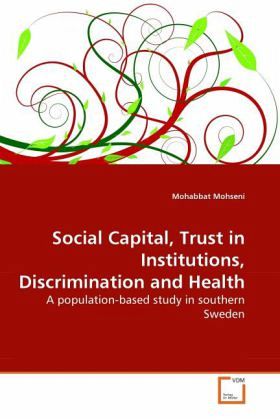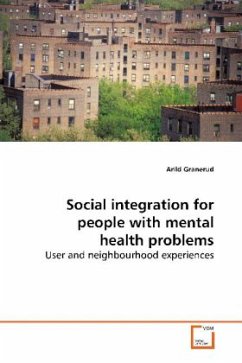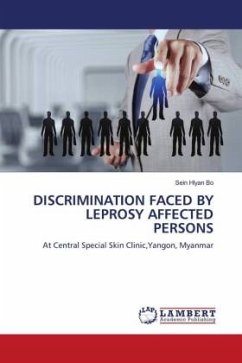
Social Capital, Trust in Institutions, Discrimination and Health
A population-based study in southern Sweden
Versandkostenfrei!
Versandfertig in 6-10 Tagen
32,99 €
inkl. MwSt.

PAYBACK Punkte
16 °P sammeln!
Social factors affect health. Some societies have effective institutions and healthy citizens while other societies do not. Social capital may be an explanation for such differences. The concept of social capital has recently been introduced in the public health literature as a possible explanation for findings regarding inequalities in health. Addressing social inequalities, distrust, discrimination and other social conditions presents new and different challenges than past public health problems, and it seems that social determinants of poor health can only be addressed by societal solutions...
Social factors affect health. Some societies have effective institutions and healthy citizens while other societies do not. Social capital may be an explanation for such differences. The concept of social capital has recently been introduced in the public health literature as a possible explanation for findings regarding inequalities in health. Addressing social inequalities, distrust, discrimination and other social conditions presents new and different challenges than past public health problems, and it seems that social determinants of poor health can only be addressed by societal solutions. Many studies have assessed the effects of horizontal trust and discrimination on health. Little academic literature exists on vertical trust as well as anticipated discrimination. This book, therefore, deals with the effects of vertical dimension of trust and anticipated ethnic discrimination by employers on health. Three separate studies are analyzed. The results should be particularly useful to health policy makers and employers in their employment strategies.












